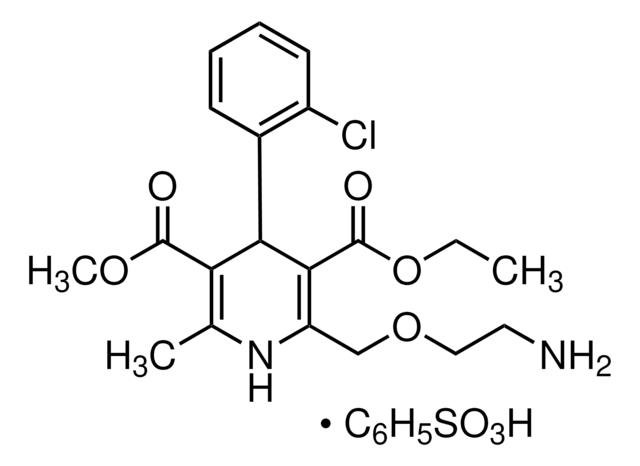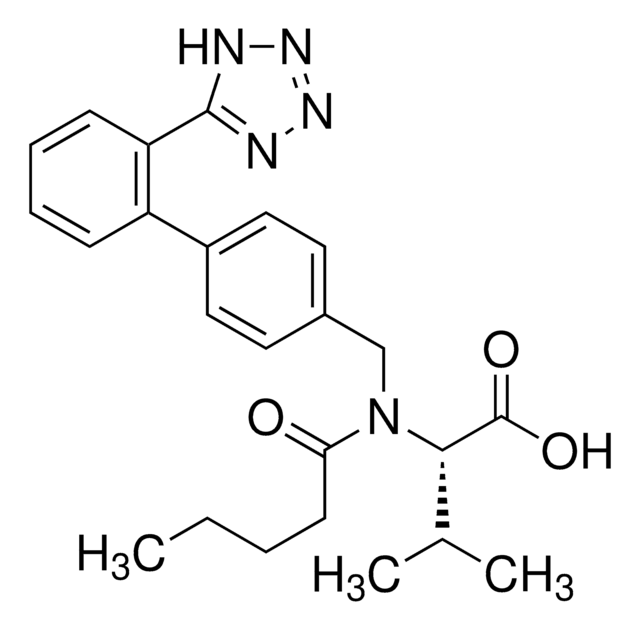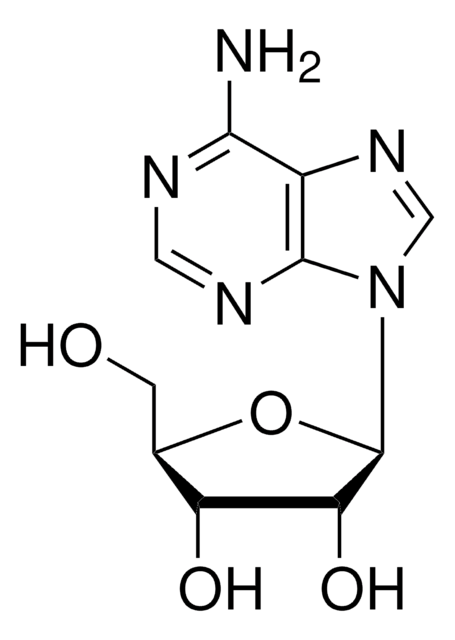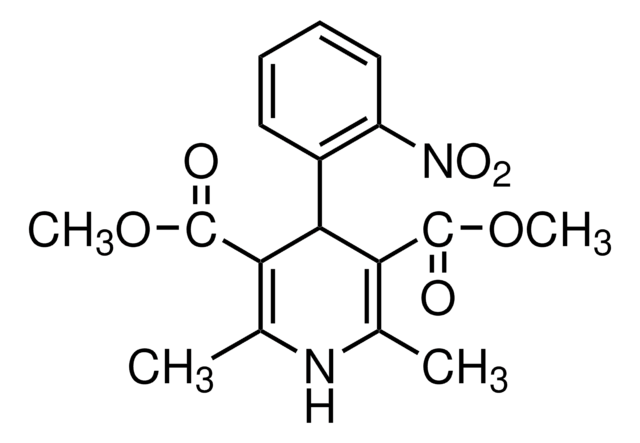T8949
Telmisartan
≥98% (HPLC), solid
Synonym(s):
4′[(1,4′-Dimethyl-2′-propyl[2,6′-bi-1H-benzimidazol]-1′-yl)methyl][1,1′-biphenyl]-2-carboxylic acid, BIBR 277
About This Item
Recommended Products
Assay
≥98% (HPLC)
form
solid
color
white
solubility
DMSO: >5 mg/mL at 60 °C
H2O: insoluble
originator
Boehringer Ingelheim
SMILES string
CCCc1nc2c(C)cc(cc2n1Cc3ccc(cc3)-c4ccccc4C(O)=O)-c5nc6ccccc6n5C
InChI
1S/C33H30N4O2/c1-4-9-30-35-31-21(2)18-24(32-34-27-12-7-8-13-28(27)36(32)3)19-29(31)37(30)20-22-14-16-23(17-15-22)25-10-5-6-11-26(25)33(38)39/h5-8,10-19H,4,9,20H2,1-3H3,(H,38,39)
InChI key
RMMXLENWKUUMAY-UHFFFAOYSA-N
Gene Information
human ... AGTR1(185)
Looking for similar products? Visit Product Comparison Guide
Application
Biochem/physiol Actions
Features and Benefits
Preparation Note
Storage Class Code
11 - Combustible Solids
WGK
WGK 3
Flash Point(F)
Not applicable
Flash Point(C)
Not applicable
Personal Protective Equipment
Certificates of Analysis (COA)
Search for Certificates of Analysis (COA) by entering the products Lot/Batch Number. Lot and Batch Numbers can be found on a product’s label following the words ‘Lot’ or ‘Batch’.
Already Own This Product?
Find documentation for the products that you have recently purchased in the Document Library.
Our team of scientists has experience in all areas of research including Life Science, Material Science, Chemical Synthesis, Chromatography, Analytical and many others.
Contact Technical Service





